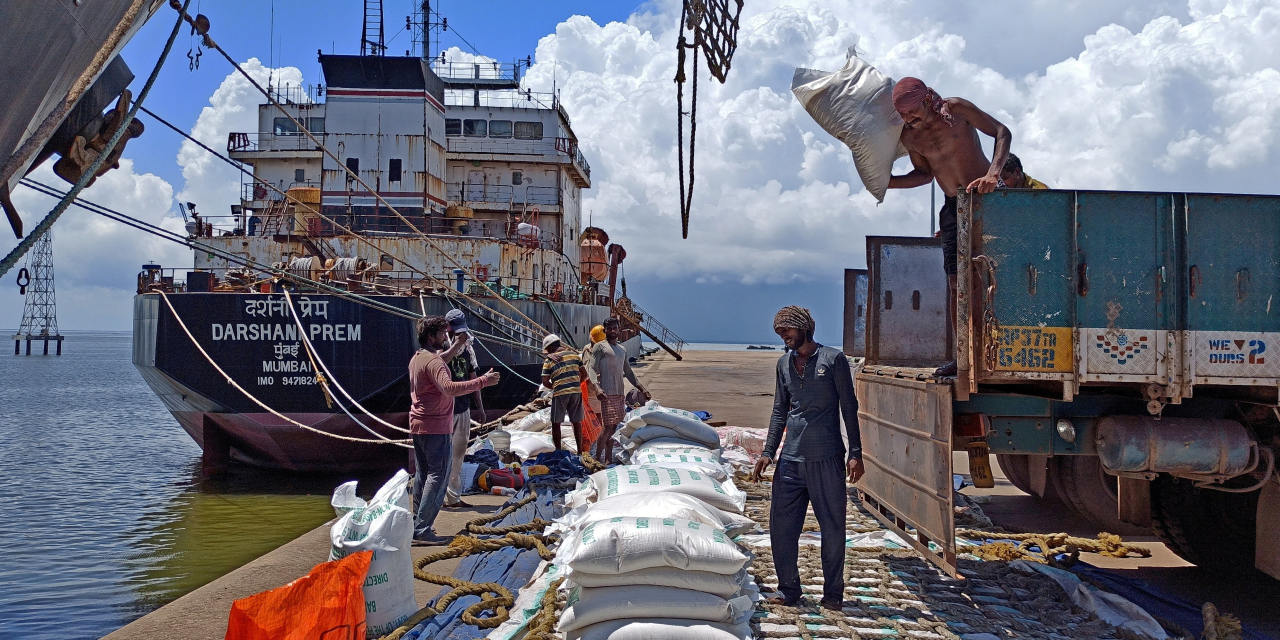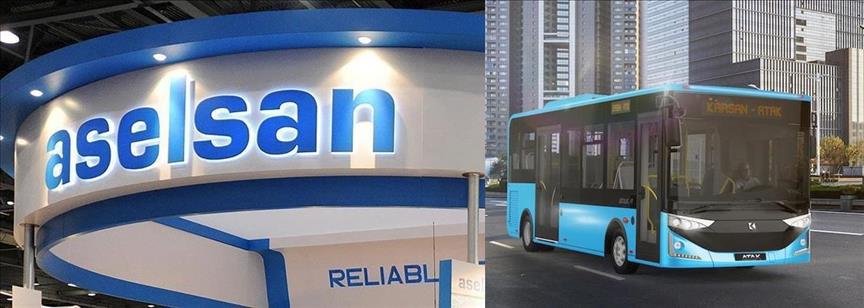Impact Of Congo's Cobalt Export Ban: Awaiting The New Quota System

Table of Contents
Global Cobalt Market Disruption
The DRC's dominance in cobalt production is undeniable; it produces over 70% of the world's cobalt. This concentration of supply creates significant vulnerabilities in global supply chains. The immediate impact of the export ban was a sharp increase in cobalt prices and a decrease in availability for manufacturers. This disruption has rippled through various industries reliant on cobalt, impacting production schedules and profitability.
- Increased cobalt prices impacting EV battery production costs: The price surge directly affects the cost of producing EV batteries, potentially slowing down the global transition to electric vehicles and increasing their price for consumers.
- Supply chain disruptions affecting various industries relying on cobalt: Beyond EVs, industries like aerospace, electronics, and medical devices are affected by the cobalt shortage, facing delays and increased production costs.
- Potential for alternative cobalt sourcing strategies gaining traction: The ban has accelerated the search for alternative cobalt sources and spurred research into cobalt-free battery technologies. This could reshape the long-term dynamics of the cobalt market.
- Geopolitical implications of the ban and dependence on a single source country: The DRC's actions highlight the risks of over-reliance on a single country for critical minerals, prompting calls for greater diversification of supply chains and more robust international cooperation.
Economic Implications for the DRC
The DRC government's motivations behind the export ban are multifaceted. The primary goals are to generate more revenue, add value to its natural resources through domestic processing, and stimulate industrialization. By processing cobalt domestically, the DRC aims to capture a greater share of the value chain and create higher-paying jobs.
- Increased job creation in domestic processing facilities: Successful implementation of domestic processing could lead to significant job creation, particularly in rural areas where cobalt mining is prevalent.
- Potential for greater tax revenue for the Congolese government: Processing cobalt domestically allows the government to collect taxes on the added value, potentially generating far more revenue than exporting raw materials.
- Risks associated with the lack of readily available processing infrastructure: The DRC currently lacks sufficient infrastructure to process the vast quantities of cobalt it produces. Building this capacity requires significant investment and expertise.
- Challenges in attracting foreign investment for domestic processing plants: Attracting foreign investment requires a stable political and regulatory environment, transparent governance, and assurances of fair and equitable business practices.
The New Quota System: Hopes and Concerns
The DRC government plans to implement a new quota system to regulate cobalt exports. This system aims to balance the needs of domestic processing with the demands of the global market. However, significant uncertainties surround its implementation and potential impact on market stability.
- Transparency and fairness concerns regarding the allocation of quotas: Concerns exist about the transparency and fairness of the quota allocation process, with potential for favoritism or corruption.
- Potential for corruption and manipulation within the quota system: Robust anti-corruption mechanisms are crucial to ensure that the quota system is not exploited for personal gain.
- The need for effective monitoring and enforcement mechanisms: Effective monitoring and enforcement are essential to prevent illegal exports and ensure compliance with the quota system.
- Long-term implications for the sustainability and ethical sourcing of cobalt: The quota system should be designed to promote sustainable and ethical cobalt mining practices, addressing environmental concerns and human rights issues.
Impact on Ethical Sourcing and Mining Practices
Congo's cobalt export ban significantly impacts efforts to improve ethical and sustainable cobalt mining practices. While intended to benefit the DRC, it also raises concerns about increased illegal mining activities due to the export restrictions.
- Increased scrutiny on supply chain traceability and due diligence: The ban has intensified the focus on supply chain transparency and due diligence, requiring companies to carefully trace the origin of their cobalt.
- The role of international organizations and certification schemes: International organizations and certification schemes play a critical role in promoting responsible sourcing and ensuring compliance with ethical standards.
- Challenges in monitoring and addressing human rights abuses in cobalt mining: The ban highlights the ongoing challenges of monitoring and addressing human rights abuses in cobalt mining, particularly concerning child labor and unsafe working conditions.
- Need for collaborative efforts to promote responsible sourcing of cobalt: Addressing these challenges requires collaborative efforts between governments, industry stakeholders, and civil society organizations.
Conclusion
Congo's cobalt export ban presents a complex challenge with both potential benefits and significant risks. While the intention of boosting domestic processing and increasing revenue for the DRC is understandable, the immediate impact on global supply chains and the uncertainty surrounding the new quota system warrant close attention. The success of this policy hinges on the effective implementation of a transparent, equitable, and sustainable quota system that addresses concerns about ethical sourcing, environmental protection, and economic stability. The international community must actively engage to ensure a responsible and sustainable future for cobalt production in the DRC. Further monitoring of the impact of Congo's cobalt export ban and the rollout of the new quota system is crucial to understanding its long-term effects on the global cobalt market. Careful observation of the effectiveness of Congo’s cobalt export ban and the subsequent quota system is paramount to the stability of the global cobalt market.

Featured Posts
-
 Gas Tax Cut Made Permanent In Ontario Highway 407 East Toll Removal On The Horizon
May 15, 2025
Gas Tax Cut Made Permanent In Ontario Highway 407 East Toll Removal On The Horizon
May 15, 2025 -
 Mlb Betting Padres Vs Pirates Predictions And Best Odds Today
May 15, 2025
Mlb Betting Padres Vs Pirates Predictions And Best Odds Today
May 15, 2025 -
 Warriors Kings Game Draymond Greens Honest Opinion Of Jimmy Butlers Play
May 15, 2025
Warriors Kings Game Draymond Greens Honest Opinion Of Jimmy Butlers Play
May 15, 2025 -
 Erbakan In Kibris Mesaji Sehitlerimizin Hatirasina Sadik Kalmak
May 15, 2025
Erbakan In Kibris Mesaji Sehitlerimizin Hatirasina Sadik Kalmak
May 15, 2025 -
 Tuerk Devletleri Ve Kktc 12 Milyon Avroluk Destek Kararinin Degerlendirilmesi
May 15, 2025
Tuerk Devletleri Ve Kktc 12 Milyon Avroluk Destek Kararinin Degerlendirilmesi
May 15, 2025
Latest Posts
-
 How To Stream San Diego Padres Games Without Cable Tv In 2025
May 15, 2025
How To Stream San Diego Padres Games Without Cable Tv In 2025
May 15, 2025 -
 Predicting The Padres Vs Yankees Series Can San Diego Upset The Yankees At Home
May 15, 2025
Predicting The Padres Vs Yankees Series Can San Diego Upset The Yankees At Home
May 15, 2025 -
 Yankees Vs Padres Prediction Who Takes The Series In New York
May 15, 2025
Yankees Vs Padres Prediction Who Takes The Series In New York
May 15, 2025 -
 Seven Game Skid On The Line Rockies Face Padres
May 15, 2025
Seven Game Skid On The Line Rockies Face Padres
May 15, 2025 -
 San Diego Padres Vs New York Yankees A Comprehensive Game Prediction
May 15, 2025
San Diego Padres Vs New York Yankees A Comprehensive Game Prediction
May 15, 2025
